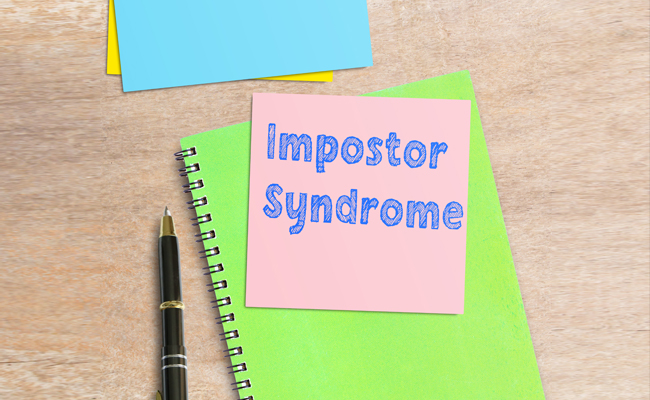Imposter Syndrome
Do you doubt yourself? Have no confidence in your skills and abilities and feel guilty over everything? Then you indeed doubt yourself for imposter syndrome!
Imposter syndrome is a psychological phenomenon that reflects a belief that you are an unreliable, incompetent, and inadequate person with a feeling like a fraud. Also, despite the evidence that you are a skilled, educated, qualified, successful, and trustworthy person.
In other words, imposter syndrome is an internal experience of believing you are not the best or most useful. Based on the person’s behavior and the circumstances, this imposter syndrome is categorized into five types, which include –
- 1. The Expert
The person won’t feel content with their work until they believe they have mastered the subject entirely. Due to the time spent looking for information, it could be challenging to finish jobs and projects. - 2. The Perfectionist
High anxiety and stress levels are common in perfectionists, especially when they set impossible expectations for themselves. Instead of praising their accomplishments, a perfectionist would concentrate on the areas where they could have done better. - 3. Natural Geniuses
They pick up new abilities fast and effortlessly, yet when faced with an impossible task, they may feel weak and embarrassed. Learning that everyone must work hard to accomplish some goals may be beneficial. - 4. The Soloist
The rugged individualist, also known as the soloist, prefers to work alone out of concern that seeking assistance may reveal their incapacity. This person can decline assistance in an effort to uphold their sense of worth. - 5. Superheroes
They frequently succeed as a result of excessive effort or workaholism. Burnout may result from this, which can harm one’s physical and mental health as well as interpersonal connections.
Causes of Imposter Syndrome
There are specific causes or underlying reasons for imposter syndrome. But there are a few factors that can rigger imposter syndrome at any time, as follows –
Parenting And Childhood Environment
- Comparison between peer/siblings
- Mental pressure to do well in studies and school activities
- Overprotective and complete controlling parents
- Emphasized your natural intelligence
- Pinpointing and criticizing every minor mistake
- Academic failure/success in childhood could also contribute to imposter feelings later in life.
Personality Traits
- Perfectionistic tendencies
- Low self-confidence in own talent and abilities in managing behavior and handling your responsibilities
- Lower scores on conscientiousness measures, a big five personality trait
- Higher scores on neuroticism measures, another big five trait
Existing Mental Health Symptoms
The fear of failing can cause a lot of mental suffering, and anxiety and sadness are common side effects of imposter syndrome.
But if you have depression or anxiety, it’s possible that you already struggle with self-doubt, low self-esteem, and concerns about how other people view you.
The idea that you don’t really belong in your academic or professional environment can be fostered by this mindset of feeling “less than” as well as reinforced by it.
New Responsibilities
Feeling undeserving of a job or academic opportunity you just achieved is a very normal emotion.
You undoubtedly want the position. It might even be your ideal position. Nevertheless, you might be concerned that you won’t live up to expectations or that your skills don’t compare to those of your classmates or coworkers.
Feelings may help you get settled with your new responsibility and sometimes it may get worse, when you are failed to seek help or encouragement from others.
As the Impostor syndrome does not have a specific cause, it doesn’t have a specific treatment or therapy too. But if you worried about how it affects their life, you can get assistance from a mental health expert through psychotherapies.
Impostor syndrome symptoms can strike anyone at any time. It’s crucial to keep in mind that impressions don’t always correspond to reality. Also, discussing worries and battling doubts are two strategies for overcoming them, significantly when the signs and symptoms adversely affect a person’s mental health and work-life balance.
Need psychotherapy professional assistance? Contact Psychotherapy Partners MN to schedule an appointment.











Leave a Reply